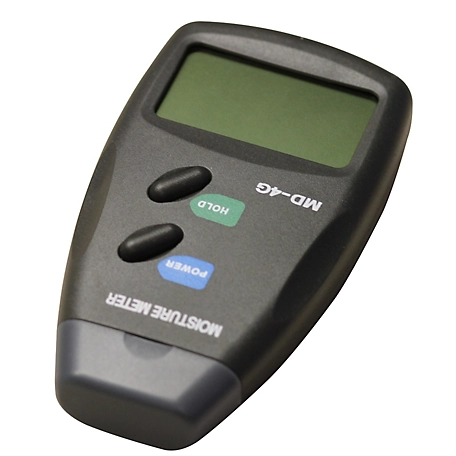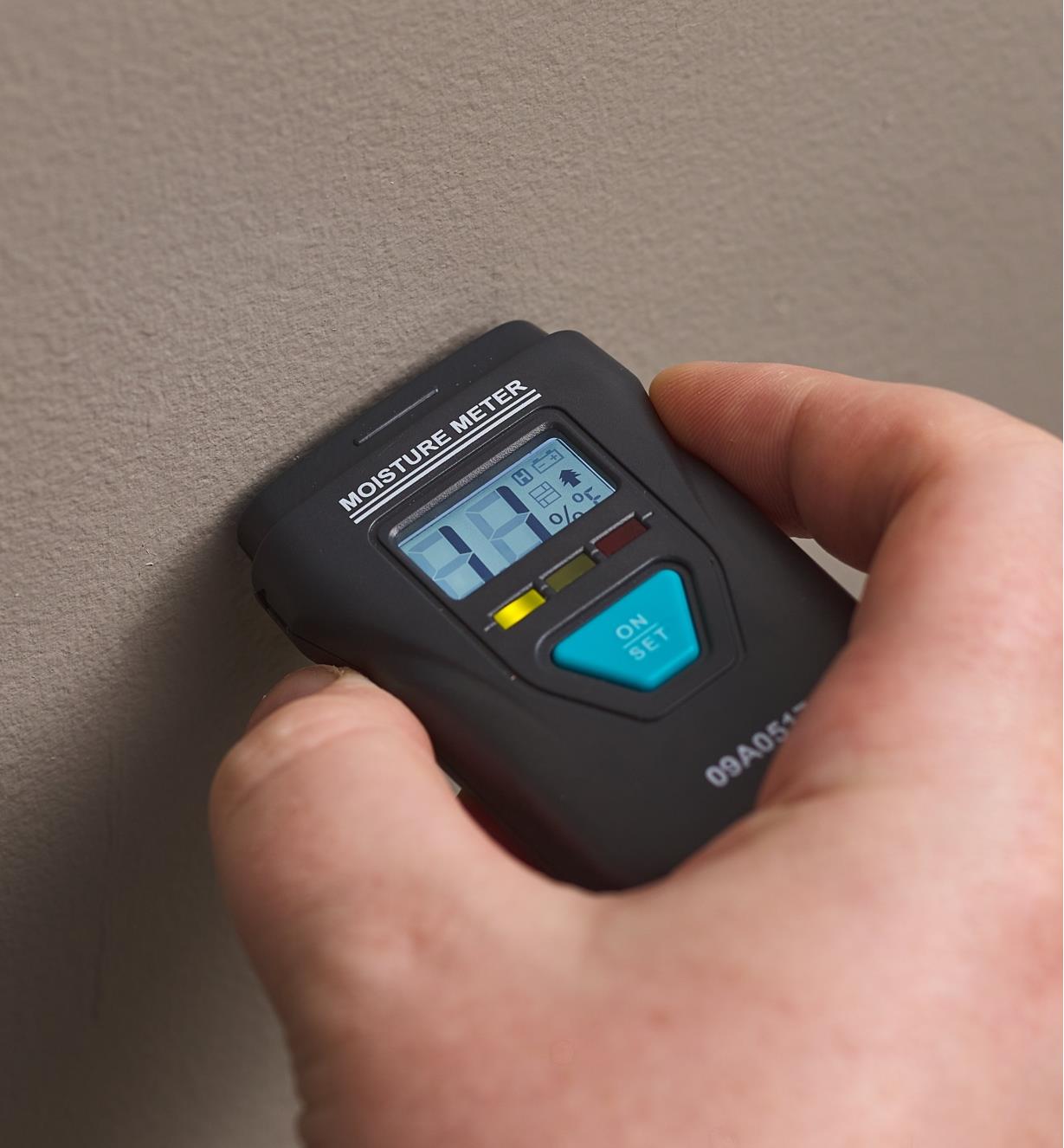Moisture Meter Reviews: Comparing the Best Designs for Expert and DIY Use
Wiki Article
The Ultimate Guide to Moisture Meters: A Comprehensive Overview and Just How They Can Conserve You Cash
In the world of building upkeep, building and construction, and various industries, the value of precisely determining moisture degrees can not be overemphasized. Moisture meters function as important devices in discovering and monitoring moisture content in materials, aiding in preventing pricey damages and ensuring the quality of items. Comprehending the nuances of various kinds of moisture meters, their applications, and the potential cost-saving benefits they offer can be a game-changer for services and experts alike. Finding how these tools can not only simplify processes but additionally add to economic savings is a trip worth starting.Kinds of Moisture Meters
Various kinds of moisture meters are readily available for different applications in numerous markets. One common type is the pin-type wetness meter, which determines the electric resistance between 2 pins inserted right into a product. This type is suitable for timber, drywall, and other building products. Pinless moisture meters, on the other hand, usage electromagnetic sensing unit plates to scan a larger location without causing damage to the product's surface. These meters are ideal for swiftly assessing wetness degrees in large locations such as walls and floors.Infrared dampness meters determine the thermal homes of a product to determine its wetness content non-invasively, making them beneficial for applications where pin or pinless meters might not be appropriate. Comprehending the different kinds of dampness meters offered can help markets choose the most suitable device for their certain dampness dimension needs.

Advantages of Utilizing Moisture Meters

In addition, using moisture meters can lead to enhanced energy efficiency. In agricultural settings, dampness meters play a critical function in enhancing plant yields by making it possible for farmers to monitor dirt dampness levels and make educated watering choices.
Exactly How to Select the Right Moisture Meter
Selecting the ideal moisture meter involves taking into consideration crucial factors such as product compatibility, measurement range, and calibration accuracy. When picking a wetness meter, it's important to ensure that the meter appropriates for the particular material you will be testing. Different products have differing electrical residential or commercial properties that can influence wetness readings, so picking a meter created for your material is important for precise results. In addition, consider the dimension series of the wetness meter. Guarantee that the meter can discover wetness levels within the array needed for your applications. Calibration accuracy is one more crucial element to bear in mind (Moisture Meter). Opt for a dampness meter with trusted calibration to ensure specific and constant analyses. Some meters might call for periodic calibration modifications, so understanding the calibration procedure is very important. By meticulously evaluating these aspects, you can pick a dampness meter that satisfies your needs and gives accurate moisture dimensions for your projects.Appropriate Techniques for Moisture Meter Use
To their website make sure accurate dampness readings and take full advantage of the effectiveness of a moisture meter, employing correct methods is important. When making use of a pin-type wetness meter, place the pins or probes into the product being evaluated till they make full call. By complying with these correct methods, customers can depend on their dampness meter to offer reliable wetness degrees, aiding in avoiding costly damage or making certain high quality in numerous applications.
Cost Financial Savings With Moisture Meter Applications
How can the strategic use of moisture meters cause significant expense financial savings across different sectors? Moisture meters play a critical duty in cost financial savings by stopping possible damage and making certain quality control in various fields. In the agriculture market, dampness meters aid in figuring out the optimum time for harvesting crops, avoiding excess or over-drying moisture that can affect the end product's quality. This accurate tracking helps farmers prevent unneeded losses and optimize their return.

Furthermore, in the food processing market, wetness meters are necessary for checking item top quality and making certain conformity with safety and security guidelines. By accurately determining wetness material in food, producers can avoid putridity, maintain freshness, and reduce waste, causing considerable expense savings. Overall, the tactical application of dampness meters is an important investment that can result in substantial cost decreases and enhanced effectiveness across different markets.
Conclusion
In final thought, dampness meters are valuable devices for detecting and determining wetness levels in different products. By utilizing the best dampness meter and following appropriate strategies, customers can efficiently protect against costly damages created by excess dampness.Moisture meters serve as crucial tools in spotting and keeping track of moisture web content in materials, aiding in stopping expensive problems and making certain the quality of products. Infrared dampness meters determine the thermal properties of a material to determine its wetness material non-invasively, making them beneficial for applications where pin or pinless meters might not you could try this out be appropriate.Dampness useful site meters supply indispensable advantages in precisely examining and keeping an eye on dampness degrees in diverse materials and environments. In farming settings, moisture meters play an important function in enhancing crop yields by enabling farmers to monitor dirt dampness degrees and make educated irrigation decisions.In conclusion, wetness meters are useful devices for determining and spotting moisture degrees in different materials.
Report this wiki page